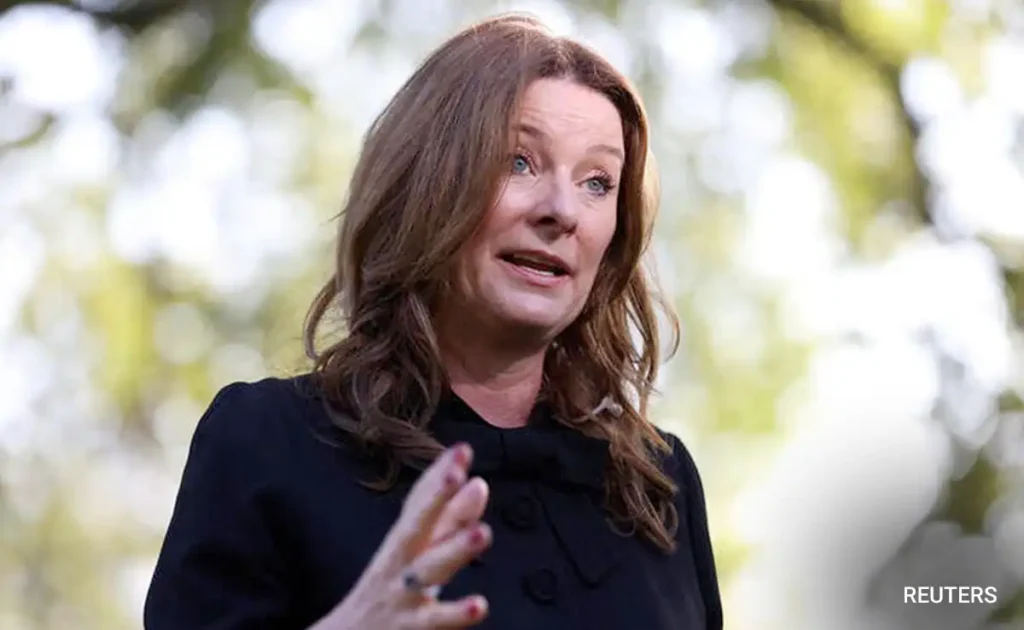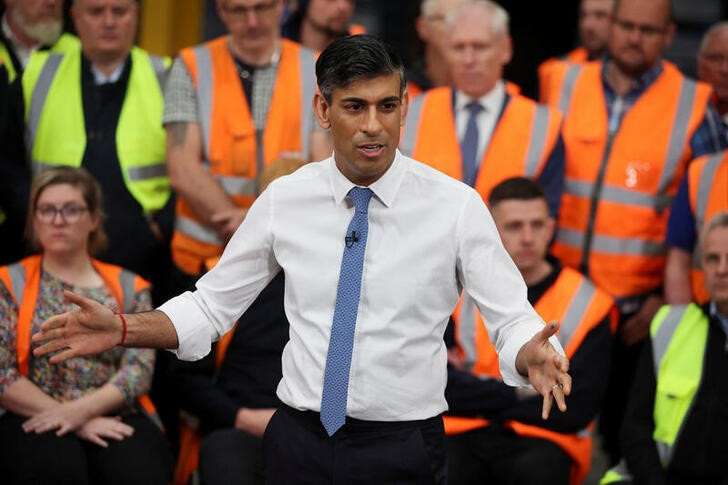For many, a university degree is the traditional route to career success, but it’s not the best fit for everyone.
Rising tuition costs and student debt burden are major deterrents, prompting a reconsideration of higher education’s value.
Not all careers require a four-year degree; some professions, especially in skilled trades, benefit more from hands-on experience. Apprenticeships offer an appealing alternative, providing practical training while earning a wage.
These programs combine classroom instruction with real-world application, often leading to well-paying jobs without the financial strain of student loans.
Additionally, apprenticeships can lead to quicker entry into the workforce, addressing the immediate demand for skilled labor in various industries.
As education costs climb and job markets evolve, apprenticeships present a viable and pragmatic path for many seeking professional and financial stability.
UK’s Prime Minister, Rishi Sunak, unveiled an ambitious plan to create 100,000 high-skilled apprenticeships each year by eliminating what he calls “rip-off degrees,” should the Conservatives win the upcoming general election.
The proposed plan would replace “low-quality” university degrees with apprenticeships, a move the Conservatives argue will better serve young people and the economy.
Legislation would grant the Office for Students, the universities regulator, enhanced powers to close underperforming degree courses. These courses would be evaluated based on dropout rates, job progression, and future earnings potential.
The Conservatives estimate that creating these apprenticeships will cost £885 million by the end of the next parliament in 2029-30. This expenditure would be offset by shutting down the least effective degree programs, projected to save around £910 million.
Sunak emphasized the transformative potential of education, stating, “Improving education is the closest thing we have to a silver bullet for boosting life chances.”
He committed to increasing apprenticeship opportunities, arguing that this approach would provide young people with vital employment prospects and financial security.
Declining Apprenticeships In The UK
Since 2010, the Conservatives claim to have facilitated 5.8 million apprenticeships. However, the number of new apprenticeships in England has been declining, falling from 500,000 in 2015 to 337,000 last year, according to Commons library statistics.
Factors contributing to this decline include the introduction of the apprenticeship levy in 2017-18 and the impact of the Covid-19 pandemic.
In response to the Conservatives’ apprenticeship plans, Labour has proposed replacing the apprenticeship levy with a growth and skills levy.
This would allow businesses to allocate 50% of their funds towards non-apprenticeship training, broadening the scope of workforce development.
During the launch of their apprenticeship policy, the Conservatives criticized New Labour’s legacy of increasing university attendance. In 1999, Tony Blair set a target to have 50% of young adults enter higher education.
Education Secretary Gillian Keegan, who herself completed an apprenticeship at a car factory, argued that this target led to a proliferation of low-quality degrees, burdening students with debt without enhancing their career prospects.

Keegan contrasted the two parties’ approaches, stating, “The choice is clear.”
“Sir Keir Starmer and the Labour party have contempt for apprenticeships, while Rishi Sunak and the Conservatives have a clear plan to give young people the best start to their careers.”
Gillian Keegan
However, Shadow Education Secretary Bridget Phillipson dismissed the Conservatives’ announcement as “laughable,” pointing to the decline in apprenticeship numbers under their governance.
“Why on earth should parents and young people believe they’ll create training opportunities now, after 14 years of failing to deliver opportunities for young people and the skills needed to grow our economy?”
Bridget Phillipson
Labour aims to revive the economy by aligning apprenticeships with the needs of young people and introducing a new growth and skills levy.
Phillipson highlighted Labour’s commitment to creating a new generation of technical excellence colleges in collaboration with employers and universities, to secure good jobs locally.
Addressing supporters in Staffordshire, Sunak criticized Labour’s plans, claiming they would “halve the number of apprenticeships.”
Responding to a query about the “skills gap” from the chief executive of Churchill Ceramics, the Prime Minister reaffirmed the Conservatives’ dedication to enhancing the quality and availability of apprenticeships.
“Not everyone has to go to university,” Sunak asserted, emphasizing the party’s belief in diverse pathways to success.
READ ALSO: Ghana and UN Commemorate 76th International Day of UN Peacekeepers























